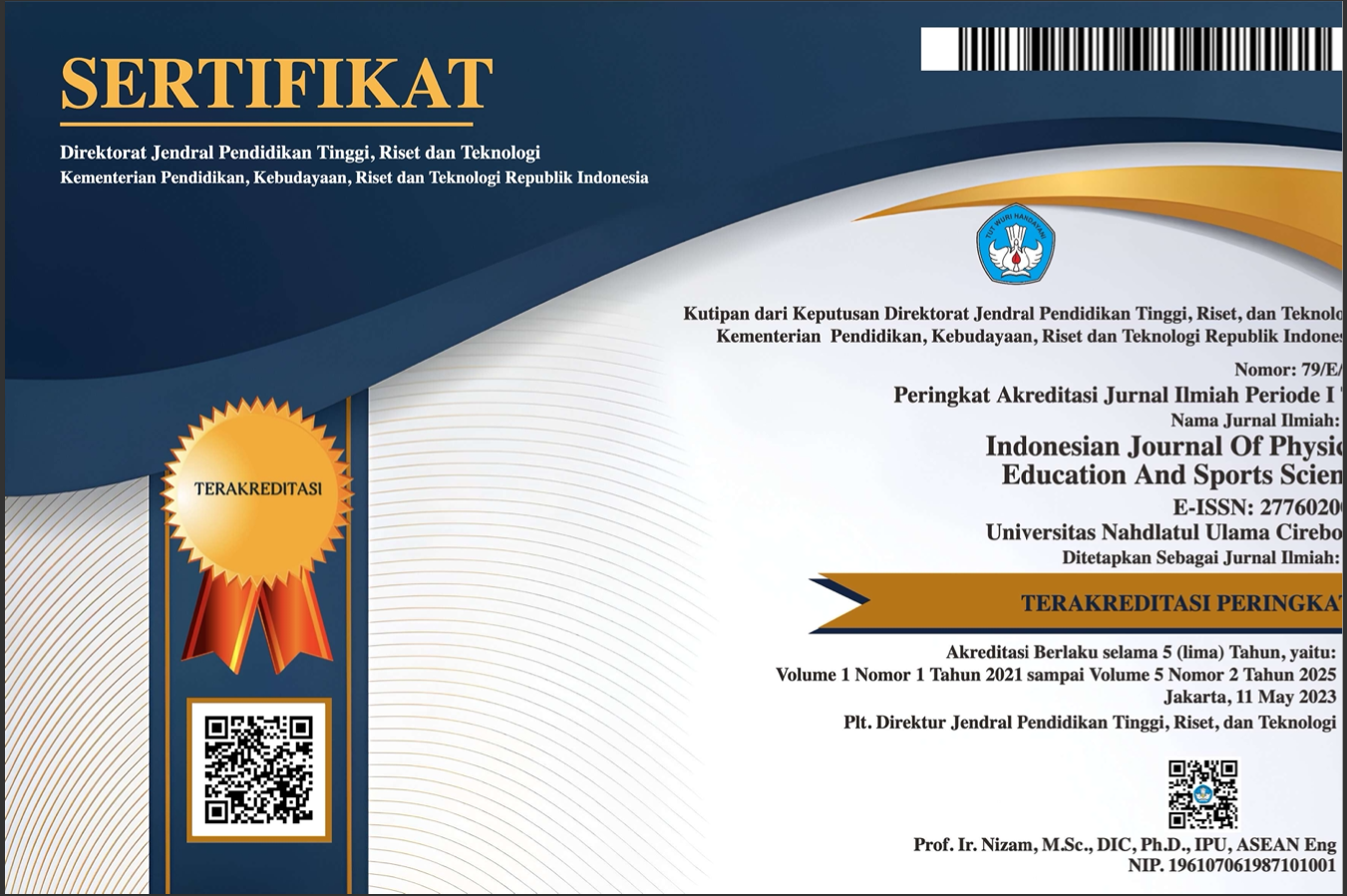The Effect of the Traditional Game of Bola Nyawa on Improving Motor Skills
DOI:
https://doi.org/10.52188/ijpess.v5i3.1317Keywords:
Traditional Games, Improving Motor SkillsAbstract
Study purpose. Traditional games are now rarely played, even though they contain educational and social values, as they often involve physical activity, strategic planning, teamwork, agility, and bring a unique sense of joy. This study aims to describe the process and learning outcomes through traditional games in improving the motor skills of students at SD Negeri Kalemba, particularly fifth-grade students.
Materials and methods. This study uses the Classroom Action Research method and uses a total sampling technique. The traditional game applied in this study is the Bola Nyawa game. The instrument used in this study is a motor skills test, with a sample of 5 students from Kalemba State Elementary School, Langgudu District, Bima Regency, the data analysis technique uses the SPSS version 22 application.
Result. Based on the significance value of the two-tailed test, the results obtained were 0.002; 0.001; and 0.003, all of which were smaller than 0.05 (sig < 0.05). The results of the study show that the traditional Bola Nyawa game can improve children's motor skills, which is indicated by the rejection of the null hypothesis (Ho) and the acceptance of the alternative hypothesis (Ha)
Conclusion. Thus, it can be concluded that the traditional game Bola Nyawa has a significant influence on improving students' motor skills.
Published
How to Cite
Issue
Section
Copyright (c) 2025 Roni Muliadin, Rabwan Satriawan, Ainun Fitriani, Furkan Furkan, Ewan Irawan

This work is licensed under a Creative Commons Attribution-NonCommercial-ShareAlike 4.0 International License.











